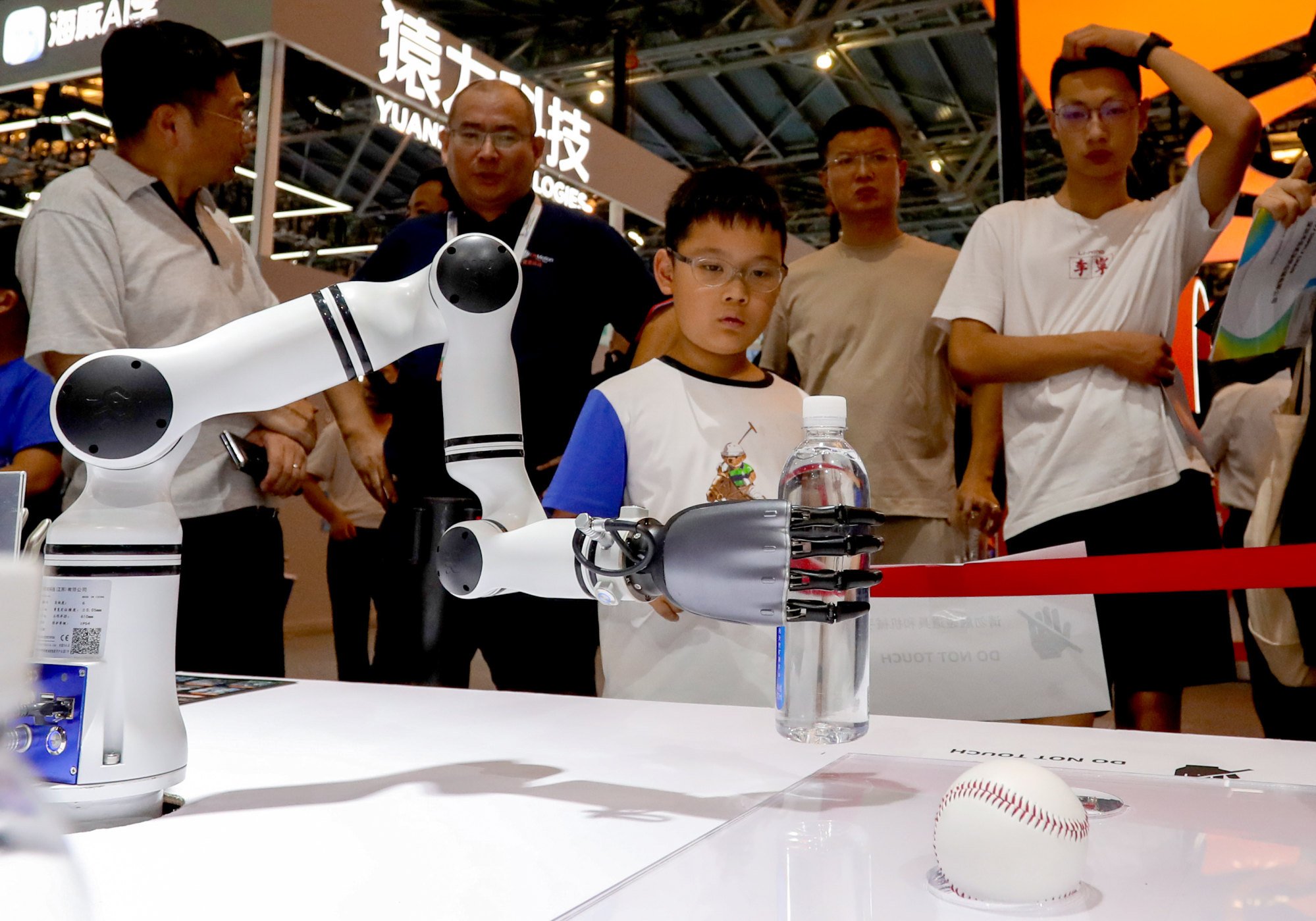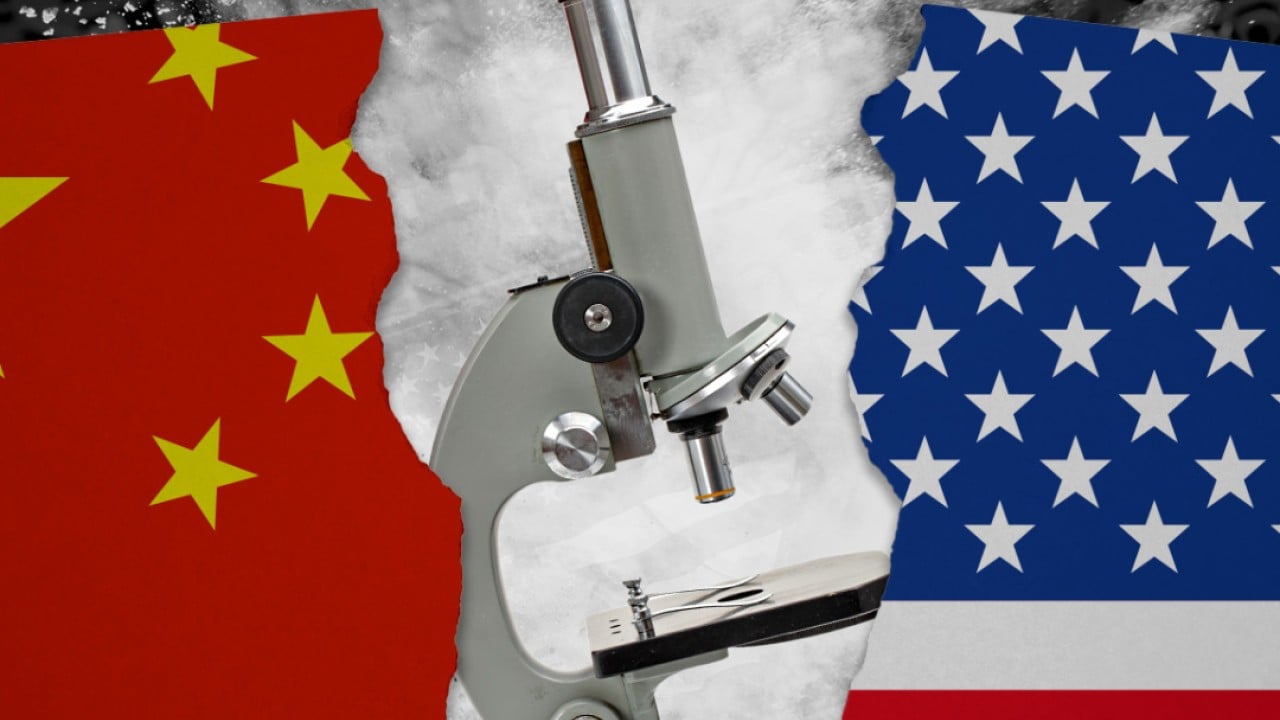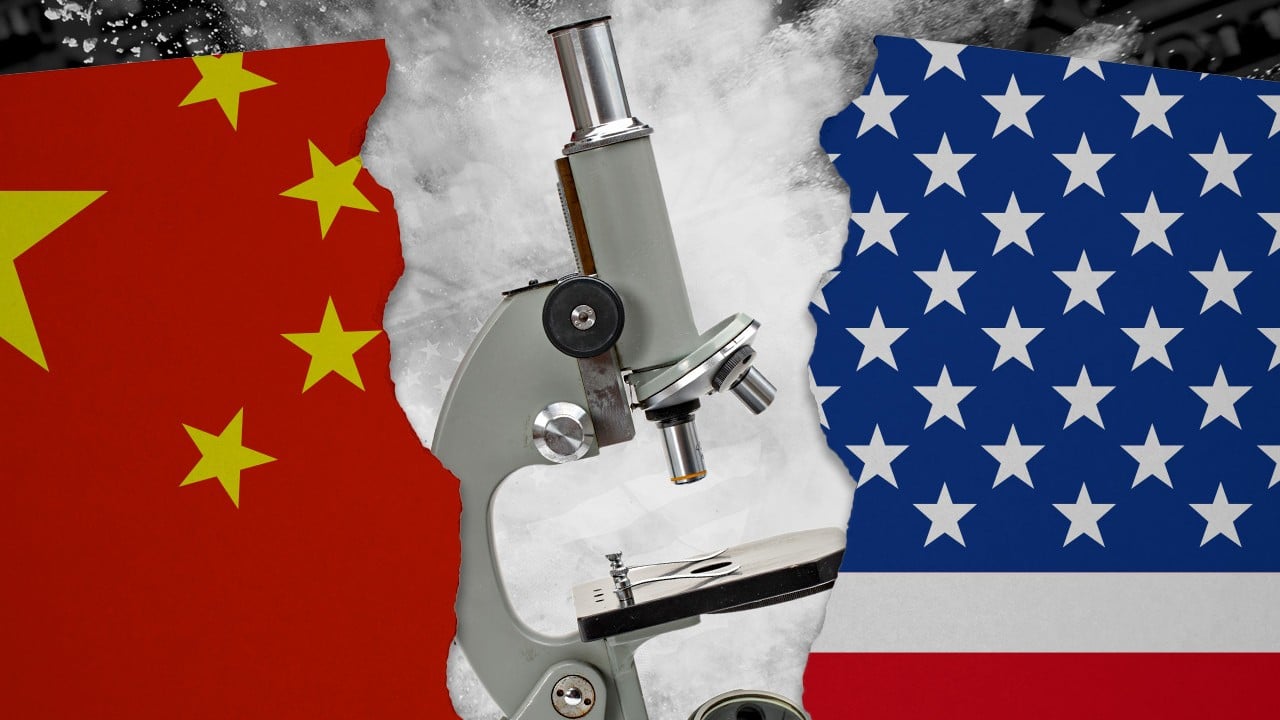The rollback in scientific cooperation between the US and China has “backfired” on the American STEM community, the Chinese science ministry’s newspaper reported on Tuesday, citing a study on scientific productivity in the United States.
The study by researchers at Boston University, the University of Pennsylvania and Claremont Graduate University, was published last month by the National Bureau of Economic Research (NBER), a private, non-profit research organisation.
It examined the impact of rising US-China geopolitical tensions from 2016 to 2019 on the mobility of students, citing research between scientists, as well as scientist productivity in both countries. Analysing public résumés and research metadata, the study likened the tensions and decoupling between the nations as “building a wall around science”.
“We document a sharp decline in Chinese usage of US science as measured by citations, but no such decline in the propensity of US scientists to cite Chinese research,” the study said.
“We find that while a decline in Chinese usage of US science does not appear to affect the average productivity of China-based researchers as measured by publications, heightened anti-Chinese sentiment in the US appears to reduce the productivity of ethnically Chinese scientists in the US by 2 to 6 per cent.”
The report referred to US efforts like the 2018 China Initiative targeting ethnically Chinese scientists accused of espionage, and the Trump-era trade war as reasons behind the drop in productivity among ethnically Chinese scientists in the US.
On Tuesday, the Chinese Ministry of Science and Technology’s official news site, Science Technology and Daily, published an article on the report titled “Who was finally trapped by the ‘small yard, high fence’?”
The article referred to a strategy adopted by the US to restrict Chinese access to key technologies, especially ones with military potential.
In October 2022, US national security adviser Jake Sullivan described it by saying: “Chokepoints for foundational technologies have to be inside that yard, and the fence has to be high, because our strategic competitors should not be able to exploit American and allied technologies to undermine American and allied security.”
Some observers warned that while technologies vital to US national security had to be protected, “not all Chinese students, researchers and scientists are spies”.
“Overreach in the form of blanket bans, unwinding global supply chains, and discrimination against Chinese individuals based on national origin is not the answer,” Samm Sacks, a senior fellow at the think tank New America and Yale Law School’s Paul Tsai China Centre, said in testimony about the strategy at a House Foreign Affairs Committee hearing in 2019.
According to Science Technology and Daily, the NBER study revealed that the breakdown of Sino-US scientific cooperation initiated by the US had “backfired” on the American scientific community and weakened the country’s own research.
However, the NBER researchers said their results “do not suggest any clear ‘winner’”.
“[The results] instead indicate that increasing isolationism and geopolitical tension lead to reduced talent and knowledge flows between the US and China, which are likely to be particularly damaging to international science,” the researchers said.
“Many of the policies tied up in the rise of tensions between the US and China … were driven by an inherently nationalistic motivation to reduce reliance on the other country and, in the process, to strengthen each country’s scientific capabilities.”
The study noted that this not only included US policies, but Chinese efforts to strengthen domestic science such as the Thousand Talents Programme, which sought to recruit overseas ethnically Chinese academics to work in the country.

The future of the US-China Science and Technology Cooperation Agreement, which began in 1979 and was given a six-month extension in February, was still unclear.
“Further deterioration of this relationship would lead to a loss of young Chinese talent on the US side, reduced access to frontier knowledge on the Chinese side, and be a hit to scientific productivity,” the researchers said.
The US researchers said that the rise in tensions during the Covid-19 pandemic had only strengthened nationalist policies in both nations.
The 2022 US Chips and Science Act, and a “2022 Chinese government directive nicknamed ‘Delete America’ aimed at driving US technology out of the country” were also identified in the report as contributing to nationalistic sentiment.
The researchers also found that other countries may begin to benefit from Chinese talent leaving the US.
“Between 2016 and 2019, ethnically Chinese graduate students became 16 per cent less likely to attend a US-based PhD programme, and those that did became 4 per cent less likely to stay in the US after graduation,” the report said.
“In both instances, these students became more likely to move to a non-US anglophone country instead.”



